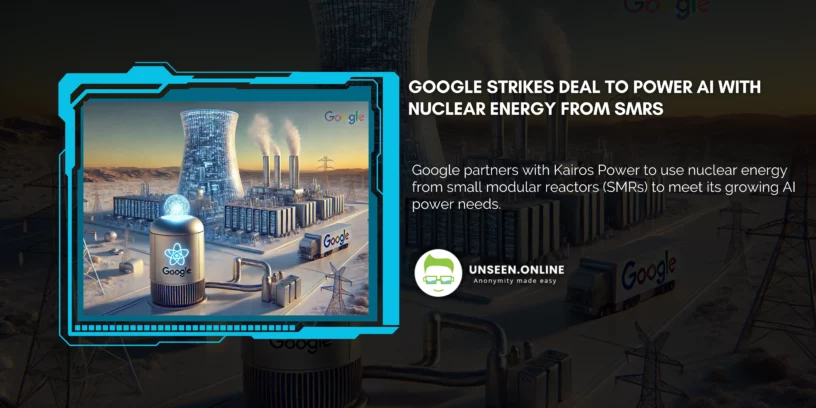Google has entered into a groundbreaking long-term agreement with Kairos Power to utilize nuclear energy from small modular reactors (SMRs) in order to meet the rapidly increasing power demands of its AI technologies, including the highly anticipated Gemini model.
This partnership is set to provide 500 MW of electricity to U.S. power grids, with Kairos using advanced molten salt-cooled SMRs, which Google advocates as a safer, more efficient, and cost-effective alternative to traditional nuclear reactors.
The deal is positioned as a crucial step in Google’s broader strategy to decarbonize its energy sources while fueling the enormous energy needs of its AI systems. Nuclear energy, in this case, is seen as a “clean” energy alternative, producing no direct carbon emissions, unlike conventional fossil fuels. However, the agreement has raised concerns among experts and environmentalists due to the waste management challenges associated with SMRs.
Studies have shown that these reactors could potentially exacerbate the issue of nuclear waste, generating between 2 to 30 times more radioactive waste than larger, traditional reactors.
Despite the waste concerns, Google believes that nuclear energy remains essential for supporting the long-term sustainability of AI and its infrastructure. However, energy experts caution that integrating new power sources, like nuclear plants, into the existing power grid could be challenging due to regulatory delays and grid limitations, which may not keep pace with the rapid growth of AI technologies’ energy consumption.







